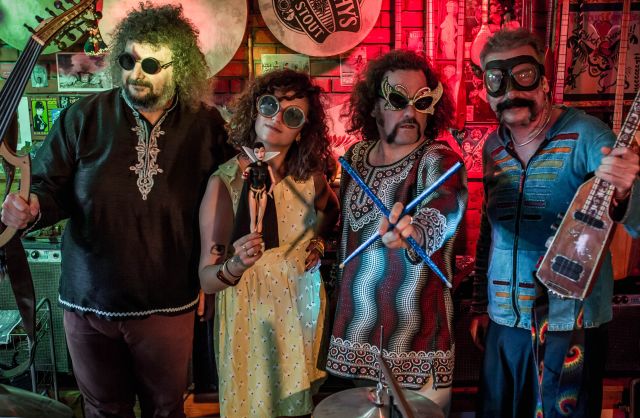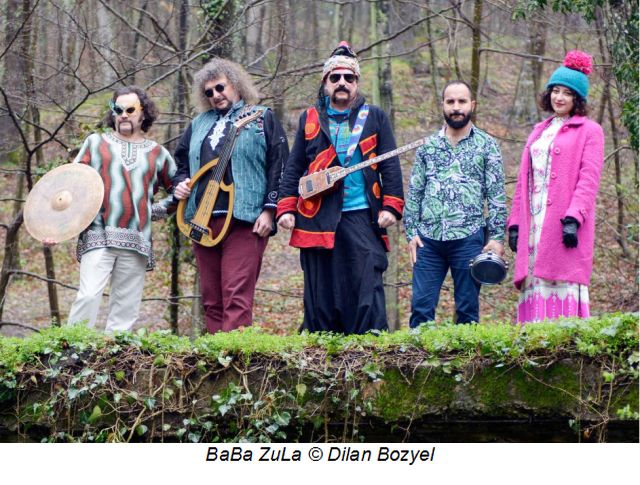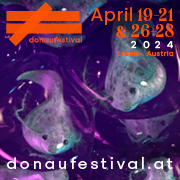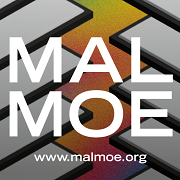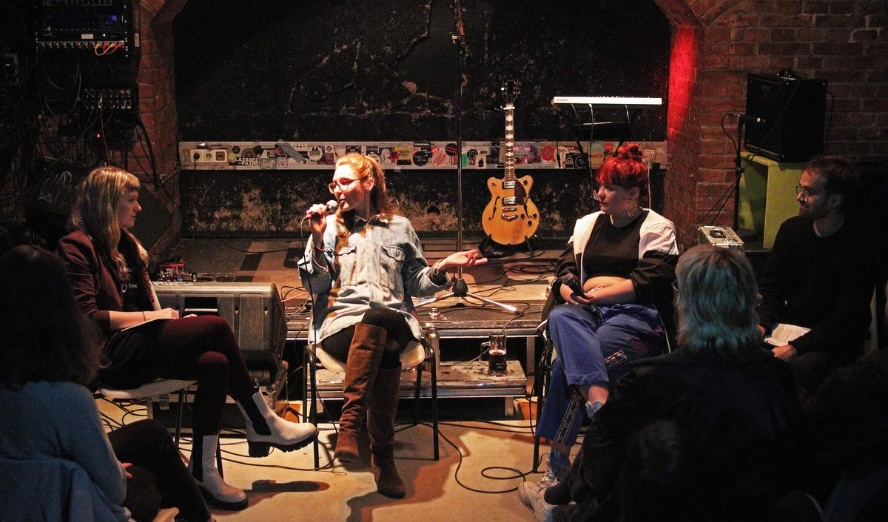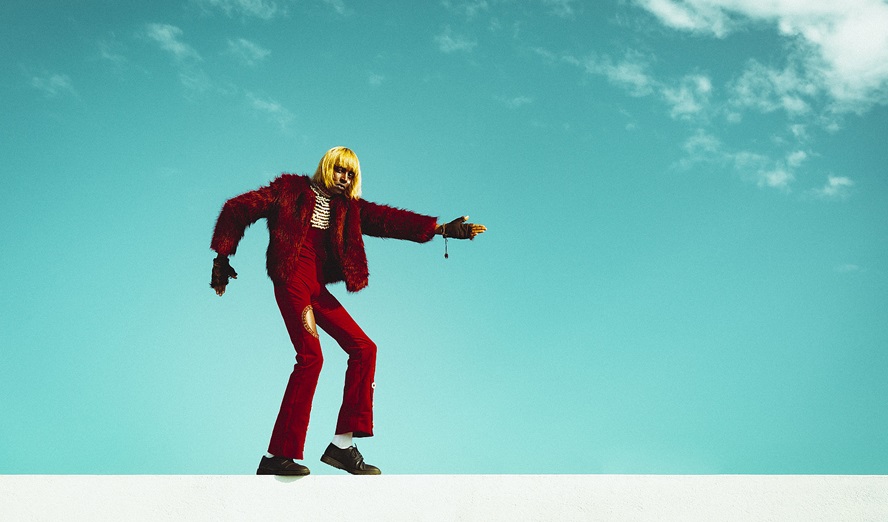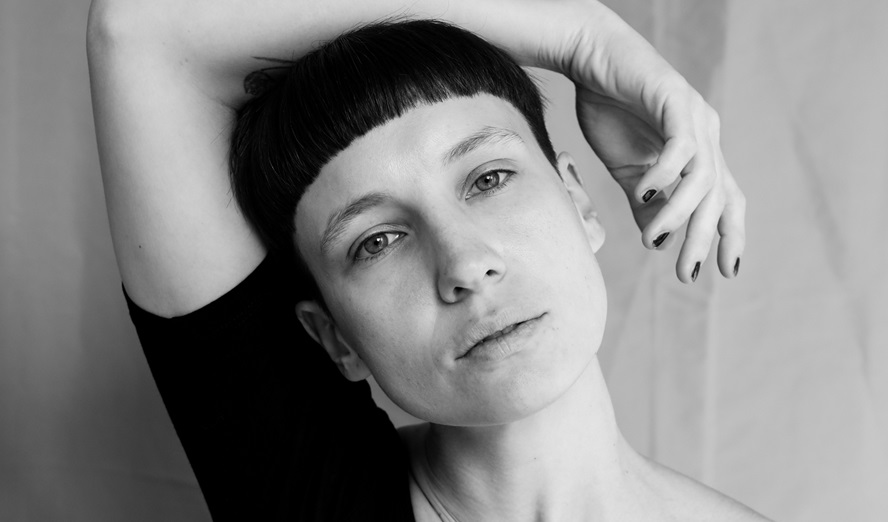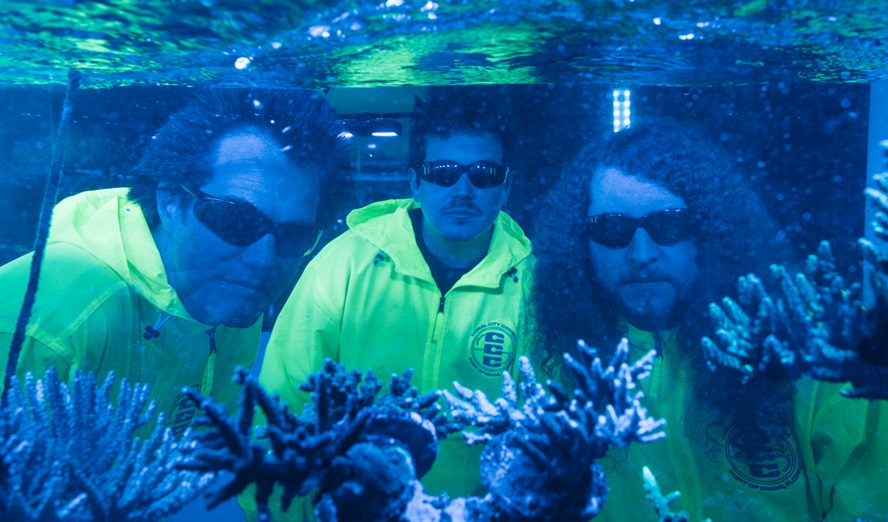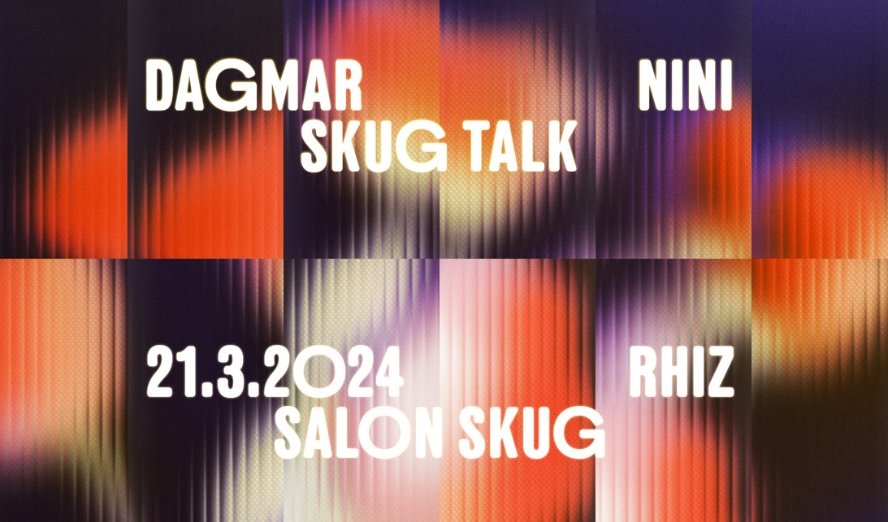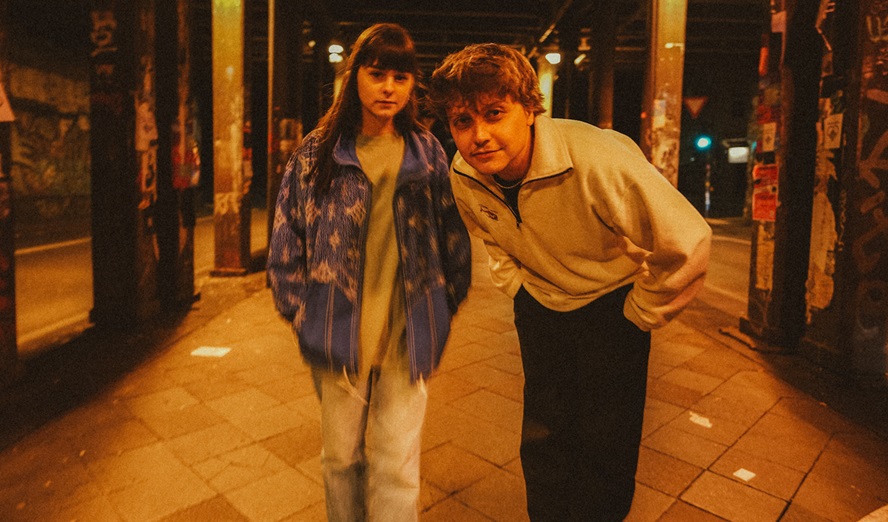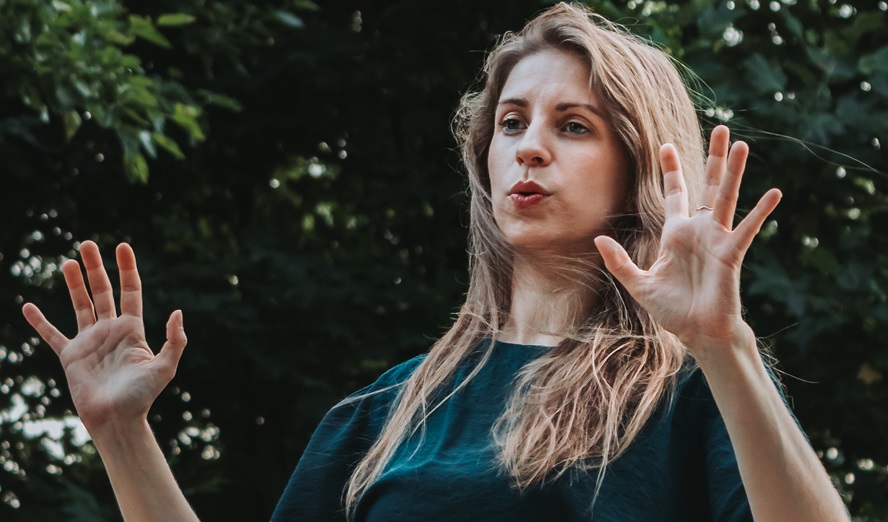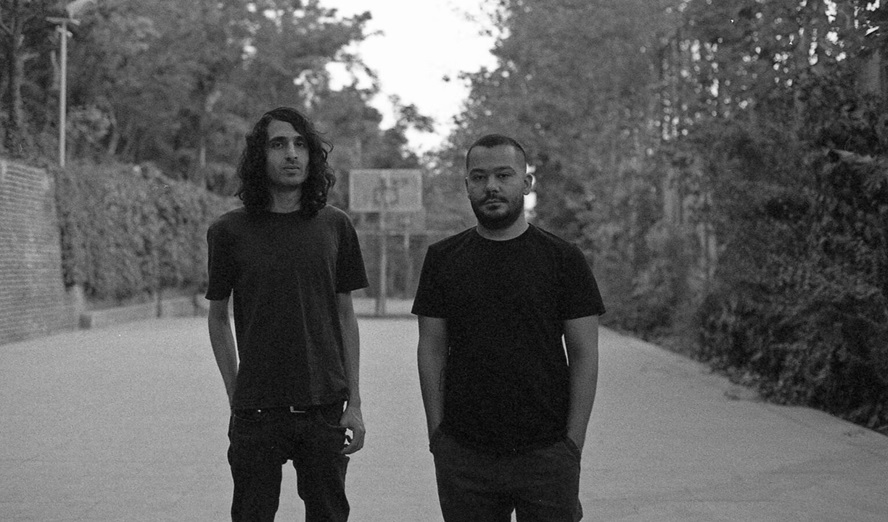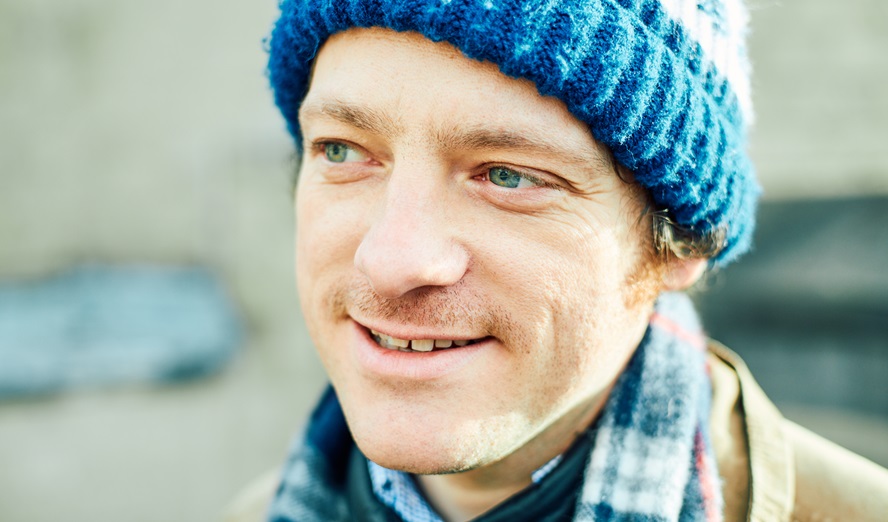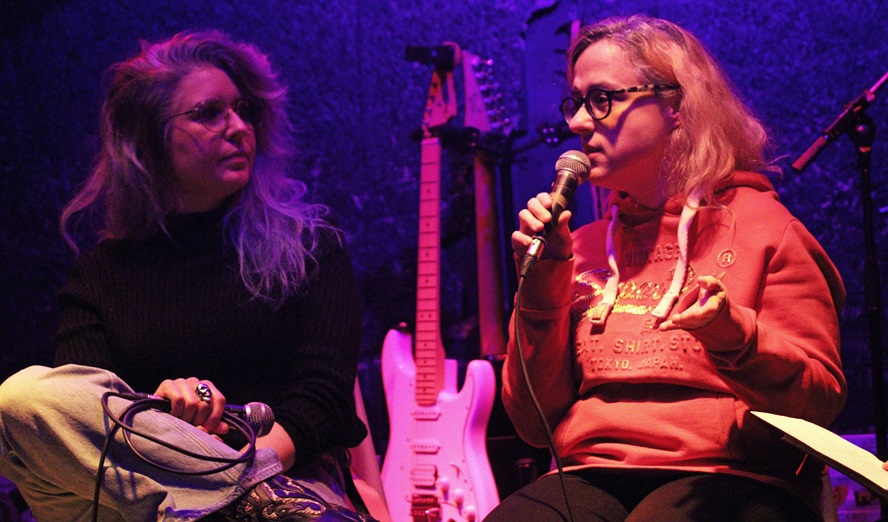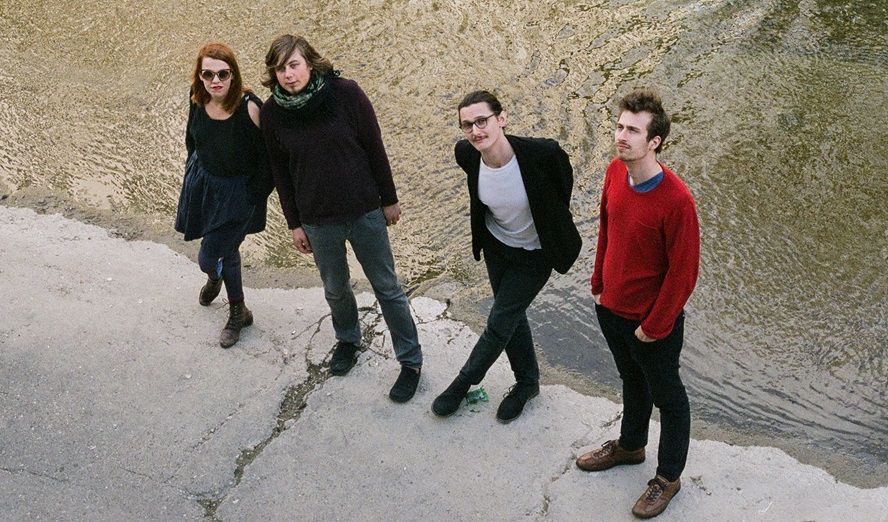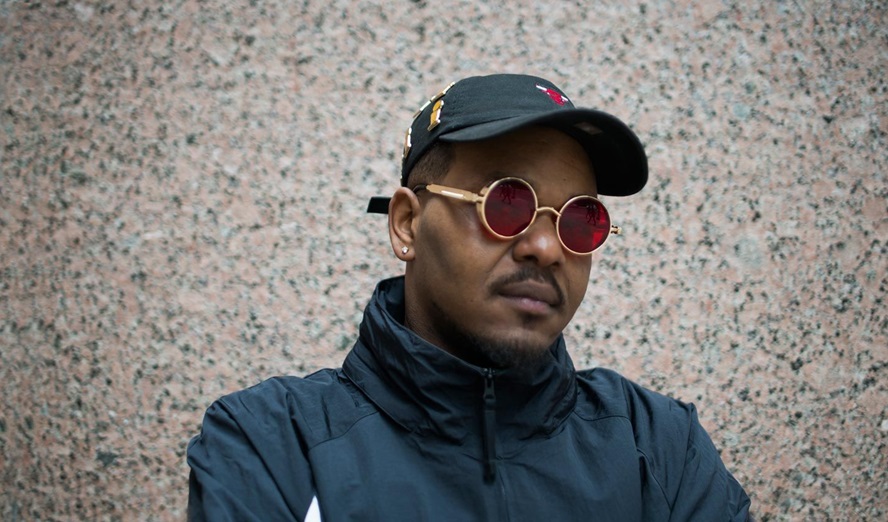skug: When you announced your song »özgür ruh« tonight at Porgy, you mentioned the term »Freigeist«? What is your definition of »Freigeist«?
Osman Murat Ertel: I think being independent is getting harder and harder. Everybody is being watched and recorded these days. Like the idea of an all-seeing god. You can read about it as a dystopian vision of the future, for example in books by George Orwell and Aldous Huxley. Orwell was defining an environment of control in »1984«, but I think Huxley was more right. He was imagining a world controlled by pleasures. You can control people by force or by giving them pleasurable things to make them sleep. TV is something like this, media can become something like this, a job can be something like this. They give you money and try to control you, make you do things they want you to. So it is important to be a »Freigeist«, a free-thinking person in order to preserve one’s own identity and not to be part of the herd of unconscious sheep. I feel there is also an undeniable awakening. And the controllers of the herd are afraid of this. We have foreseen this and can shape this awakening and win, but it could take a long time and unfortunately lots of lives might be lost on the way. We have to give people hope and beauty and chances. Art is often times very dystopic. I have enough of that. I love Kafka but he is long gone now. Kafkaesque things are happening but we need something that we like, that we love. We need to get together in a collective dream. Otherwise we might be lost without any ideals for a reason to live.
Periklis Tsoukalas: The world is full of excellent, important, powerful people. If you don’t travel much, you might not see and get to know these people. So let’s say that we are privileged to meet these people. Some media try to hide these important people. So if you don’t travel to certain countries by yourself, you might not get to know what is really happening around the world. Things can change really fast, within milliseconds. But media and politicians can do a really good job on hiding this revolutionary power.
Mehmet Levent Akman: In our lives we have our roads, our different journeys and trips. I think everybody has to make his or her own choices. A big power or faith cannot do this for you. All human beings have to do this on their own. Life is not easy in a way that you are just sent from god and end up in heaven or hell. I think you can choose to obey or to disobey in these hard days, you need to learn how to survive, to be alive and free.
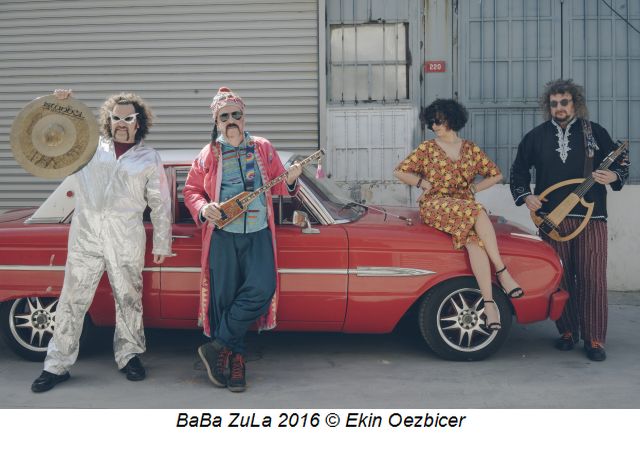
I also liked your statement »Don’t believe in politicians, believe in the poets«. So on that note, what is it like being a musician from Turkey nowadays?
Osman Murat Ertel: Many people forget about the poets. They are out of the system now. There used to be a tradition of troubadours called ashiks. The government killed this tradition. Now there are no ashiks any more travelling around, going from one village to another singing songs about the truth. »Aşik« means something like love, an ashik is the one who is in love, a link between god and nature. He sings songs about love and the troubles or disasters of people. Now it is very underground. The popular ones just sing about flirting. In the 1960s and 1970s they were really powerful, they gave students knowledge and wisdom, a spirit of love and freedom, so that’s the reason why they were destroyed. I think the last powerful ashik was Aşik Mahzuni Åžerif, a singer who played the big saz (divan saz). He was a friend of my family. I saw only one concert but I can’t describe this experience! He sang quadruple lines of poems. When he stood up, the whole stadium stood up clapping. I have another friend, who is also a musician. and works for a record company. When he was about to release his most recent record, he told the record company boss: Look, I am really tired of going to prison. Every time I publish an ashik album they put me in prison. I am old now, I don’t want to go to prison any more, please don’t release this album. In 1992 a hotel was set on fire in an attack against people on the panel discussing Pir Sultan Abdal, a very important ashik from the 15th century. Friends of my family were at this event. 32 people died in the fire and smoke. In our country, artists who are powerful and express criticism are in danger. This is the situation, the system is very ugly, they don’t let you have power if you want peace. I am afraid we could be in danger, if we get more powerful. We are a kind of underground band, hidden from the system. But now some people start to realize what we are doing, so we might be in a dangerous situation also, we need to be precautious. In my own country I would not be able to talk to you like this. Even just speaking in English and having you print it in German will make it safer than publishing this interview in Turkish. For instance, there was a Turkish journalist who never spoke badly of his country Turkey abroad. He just criticised Turkey when he was in his country and that finally led to his death. So I think he was a guy with high principles, I admire him for that but we don’t act like this. We try to speak the truth, but you have to really know all the symbolism in the lyrics.
But you don’t use traditional lyrics for your messages?
Osman Murat Ertel: We have maybe about one thousand songs, and three or four of them are traditional ones.
You have travelled a lot during your 20-year band history. Could you imagine living somewhere else or is this not an option for you?
Mehmet Levent Akman: So we live under these conditions: Before our European tour we applied for visas at the German consulate and at first they turned down two of us: me and Ûmit Adakale, our main percussionist. They said we were a threat to their nation’s security. I am an artist who has been living from my art, from making music for thirty years, and during that time I’ve come to Germany a hundred times. We played in Germany before, tomorrow we are going to Stuttgart, but they didn’t want to give me the visa this time. So we need help from the European guys. Turkey is the country with the most incarcerated journalists, our legal system does not work any more, people go to prison just for criticising our president. We really need help, you Europeans cannot just watch what is going on. Democratic protest is now a mission impossible in our land. If Turkey collapses, the European Union will continue to collapse. Time is ticking and I don’t know what is going to happen when the fundamentalists have more time to develop.
Osman Murat Ertel: In our country you can be thrown into jail just because of a re-tweet or a facebook post. They pay people to control social media with fake accounts. We should leave our country now but we don’t feel like that.
Mehmet Levent Akman: We don’t want to leave our country, we love our country, we try to resist.
My family, my ancestors are living in Istanbul. It is not so easy to escape, but unfortunately we need a plan B.
Periklis Tsoukalas: Sharing information is so important. Inside our country there is not a lot of information about other countries. If you talk about concepts, you should know what they mean. For example the word anarchy, where does it come from, what does it mean? Is it something good, is it something bad? Or democracy – these are Greek words, but it seems even the Greeks nowadays don’t know the meaning. And what does Europe mean? Europe was a mythological woman with open eyes, and therefore open-minded, which should include everyone. I don’t see this is happening. What about democracy? It should mean that the people are ruling their own lives. They decide for themselves. I don’t see this happening. Empty meanings but who will fill these gaps!? With our powers we should gratefully build a new road. What we do musically when we share an evening with people is a kind of freedom experience. The message is not only the lyrics, it’s also how we dress, what special instruments we play.
Different people enjoy your concerts, older and younger people with different backgrounds and nationalities come together to have a collective experience.
Osman Murat Ertel: We’ve been told by many people that Turkish people are in the minority at our concerts. Whereas other Turkish artists, pop stars coming to Europe, just have an almost exclusively Turkish audience. We naturally bring together European and Turkish people. People ask where we get our energy. Music is carrying us all around the world. We have respect for music. Listening to music can help you feel more secure.
Periklis Tsoukalas: The people in the audience give us back a lot of energy, they are our friends, we talk to them after our concerts.
Osman Murat Ertel: I think today many people, especially musicians and singers, have no respect for music. They are using music for their greedy, egoistic aims to get rich and famous. And they have some formulas for that. You make a video, get the best-looking girls and boys, impressive butts, cars … The songs are three to five minutes long, choruses that you repeat and so on. Some people complain that our songs are so long, but when we play shorter songs, they also complain. We have songs that last ten seconds and others that have a duration of 15 minutes. You know, there was a reason why songs were just three minutes long in former times – because of the medium they were recorded on. Musicians tried to fit into these recording formats. But this shape, this time sequence still exists. And music, as John Cage said, is some sounds within a certain time span. This is music, not notes. So when you squeeze these sounds into a time span of three or five minutes, it is very boring. It is just a formula, and we know how to make hit songs. Sometimes we do hit songs, we have YouTube videos like »Bir san bir de bana« with millions of clicks but we don’t care. We don’t want to play these songs every night, we would get bored. If you play one hundred gigs a year, you get bored of these songs.
Periklis Tsoukalas: I mean of course you can also put lyrics about freedom in a three- or five-minute song.
So it is a kind of a framed freedom …
Periklis Tsoukalas: Yes.
I think if you like to improvise, it is not useful to stick to the formula that you have mentioned.
Periklis Tsoukalas: The biggest percentage of our songs are improvisations.
Do you have similar musical backgrounds? What were your main influences when you were young?
Periklis Tsoukalas: In Greece my father was a famous drummer in the 1960s. I remember him playing his 45s, his singles. So we always had records in the house. When I was three years old my father taught me how to not scratch these jazz and blues vinyls. When I was sick and couldn’t get out of bed my parents gave me a record player so I wouldn’t feel so alone. And I remember these interesting album covers. I know exactly which albums they were because we still have them, Santana’s »Abraxas«, for example.
Osman Murat Ertel: I’ve been enjoying music since childhood. I listened to the music that my parents played. They listened to different kinds of music, in the 1960s there was no concept like world music. They listened to John Coltrane and Billie Holiday, Bob Dylan alongside Miriam Makeba, Turkish music of course, Russian music like the Red Army Choir, Beethoven, »Carmina Burana«, Prokofiev, but not that much rock’n’roll like Elvis. I discovered Turkish psychedelic bands (MoÄŸollar, Erkin Koray, Ûç Hürel, Gökçen Kaynatan, Cem Karaca ve Apaşlar, Barış Manço, Mavi IşÄ±klar, Selda) and started to listen to more rock’n’roll. To me it seems that currently many people only listen to Western music, you can be an Austrian but you can be stuck with music from English-speaking countries like England or North America. This is a new form of cultural imperialism.
